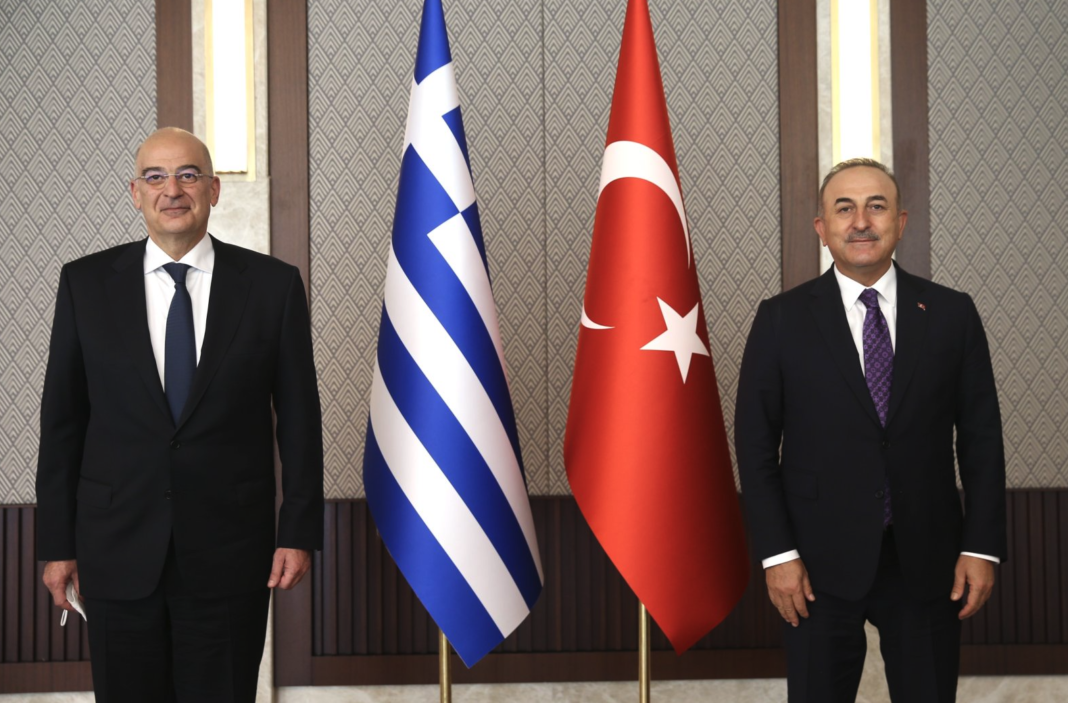The main issue is whether we are dealing with a temporary or permanent shift in Turkish policy toward Greece. By Christos Rozakis in Ekathimerini on April 9, 2023.
The bilateral relationship between Greece and Turkey after the massive February 6 tremors appears to indicate that so-called earthquake diplomacy has successfully brought the two countries closer together. Turkish officials have ceased making provocative statements and fighter jets no longer violate Greek airspace on a daily basis. Mevlut Cavusoglu, the Turkish foreign minister, and the country’s media have positively acknowledged Greece’s prompt assistance after the earthquake in the country’s southeast, including the dispatch of a disaster response team. Moreover, President Recep Tayyip Erdogan sent a congratulatory message on March 25, which marks the beginning of Greece’s War of Independence from Ottoman rule in 1821, which is of particular significance.
While Greece’s contribution to the rescue efforts in the neighboring country may have prompted this sudden change in Turkey’s stance, it is not enough for a fundamental shift in Turkish policy. The earthquakes, despite the devastation they caused, were politically a stroke of luck for the Turkish leadership as their previous policy had exhausted its limits with the magnitude of the threats made against Greece. Erdogan would have had to act on his threats at some point, as pointed out by the opposition, which challenged the president to implement them. Turkey’s leadership found a unique opportunity to modify its stance toward Greece using the imaginative trick of the ostensibly emotional backlash caused by the Greek stance, justifying it to the Turkish opposition and public opinion.
Turkey now finds itself on the brink of an economic cliff, with the devastating quake adding a burden of billions of euros to its already ailing economy. Therefore, the need for foreign assistance is particularly felt by the country’s leadership, and turning toward the European Union becomes urgent as only the bloc has the power to make a meaningful contribution to the country’s recovery. Turkey’s turn toward EU member Greece can be explained in those terms. The US also appeared unhappy with Turkey’s behavior toward Greece at a time when both countries are members of NATO, and the Alliance faces a war raging in its soft underbelly.
The main issue is whether we are dealing with a temporary or permanent shift in Turkish policy toward Greece. Earthquake diplomacy emerged in the 1990s and yielded results, but did not prevent the modification of Turkish policy in later years, culminating in the hostile attitude Turkey showed in 2020, which almost resulted in armed conflict, and in the provocative statements of the president in the recent past. Therefore, we cannot be sure that the latest switch will last indefinitely and we will not see a repeat of abusive tactics in the near future. The resolution of problems with neighboring countries is crucial to ensure permanent peace in the Eastern Mediterranean. Merely implementing low-level policy approaches may not guarantee long-term cooperation if underlying high-level policy issues remain unaddressed.
This current phase represents a window of opportunity that Greece must exploit to restart exploratory contacts, leading to official negotiations and possibly negotiations for an agreement to refer the issue of maritime zones to the jurisdiction of the International Court of Justice (ICJ). Otherwise, the future of Greek-Turkish relations will remain unfruitful, subject to circumstantial improvements, and will provide opportunities for Turkey to expand existing disputes with new claims that may ultimately lead to a rupture.
However, the prospects for restarting these talks coincide with a period in which both countries are facing imminent elections, which could cancel any positive initiative. Therefore, there should be some preparatory actions that indicate the will of the two states toward activating the mechanisms for a rapprochement, namely the exploratory talks and confidence-building measures (CBMs).
The main issue is the electoral showdown in Turkey. According to polls, the leader of the opposition alliance, Kemal Kilicdaroglu, appears to be on the path to a comfortable victory. If these polls are confirmed, he will be the new president, with the current mayors of Istanbul and Ankara as his two vice presidents. This triangle is clearly more pro-European and pro-Western than Erdogan’s ambivalent policy, which sought to develop a multifaceted middle power foreign policy with a leading role in the Eastern Mediterranean.
Although Kilicdaroglu is a nationalist, I believe that Turkey’s current needs, combined with the influence of the two vice presidents, and especially Ekrem Imamoglu, will lead to a new era in Greek-Turkish relations. While the problems will remain, a path toward peaceful resolution will be open. Even in the event of Erdogan’s re-election, which cannot be ruled out given his strong power in deep Turkey, the atmosphere in Greek-Turkish relations will not be the same as in the early 2020s.
With some effort and a lot of patience, I am confident that we can achieve the desired dialogue and search for common ground toward a resolution. This will bring the two countries to the negotiating table for the first time in many years, and ultimately, where necessary, to the ICJ since some issues may have diametrically opposed and irreconcilable positions.
Christos Rozakis is emeritus professor at the University of Athens.

